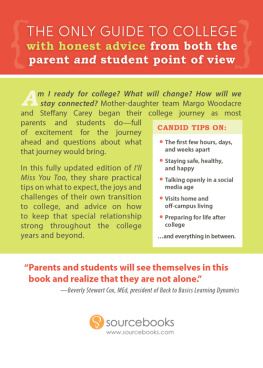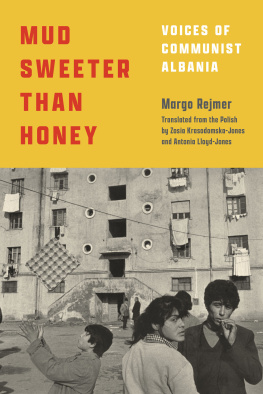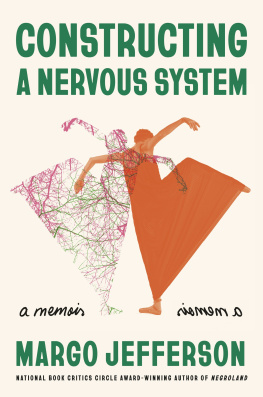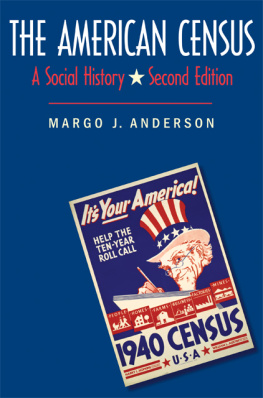Praise for eat, drink & remarry
Margo Howard manages to be wise and outrageous at the same time, a trick that few people, aside from Oscar Wilde, manage to pull off. Margo has known a lot of famous people, and she knows how to tell a whopping good story. But beneath it all runs the inspiring voice of a person living her life with a great sense of fun, style, and perfect honesty.
Rebecca Goldstein
Despite her many years of offering relationship advice as a syndicated columnistnot to mention her pedigree as the daughter of the woman the world revered as Ann LandersMargo Howard had to walk down the aisle four times before getting it right.
Now the outspoken and witty Howard shares the sometimes rueful, always optimistic story of her adventures in pursuit of the perfect mate. Eat, Drink and Remarry is the candid, funny, no-holds-barred memoir of Howards enduring belief in marriage as an institutiondespite the often contrary evidence of her own experience. As she chronicles the courtships, marriages, dalliances and divorces that shaped her adulthood, she recalls people and events that left their mark on her life, including her famous (and frank) mother, her children and a host of colleagues, from prize-winning journalists and scientists to Hollywood stars.
Eat, Drink and Remarry is an endearing book about second (and third and fourth) chances, about the sometimes cockeyed optimism of love and about finding whats right for youno matter how long it takes.
Also by Margo Howard
Eppie: The Story of Ann Landers
A Life in Letters:
Ann Landers Letters to Her Only Child
eat,
drink
&
re marry
CONFESSIONS OF A SERIAL WIFE
margo howard

For Dr. Perfect
and
ATC and ACH
Dont go back; go on.
Stella Adler
Contents
PROLOGUE
It was clearly my destiny: never a bridesmaid, always a bride. Without giving it much thought, I followed the same path as most women of my generationthe one leading straight to the altar. Granted, some of my contemporaries also had careers or grad school on their to-do list, but pas moi. I was neither inclined nor equipped to go to work or, perish the thought, extend my stay in academia. My focus was entirely on marriage because, to my mind, that is what you did after college. I just never dreamed I would do it four times.
I was an unlikely candidate to rack up a quartet of husbands. Mine was the life of a privileged (formerly known as rich), beloved only child who grew up in a stable home. My parents provided a shining example of a supportive and loving marriage. Further good fortune: my mother became Ann Landers when I was 15, so until then I had her all to myself, as it were, and in no way suffered the short shrift or long shadow that can befall a celebritys child.
One result of being a rice-scarred veteran is that I am no longer judgmental about divorce, something many people consider a public failure. As Ann Patchett wrote, Divorce is in the machine now, like love and birth and death. I do not deem untying the knot to be a woeful misfortune so much as an error of judgment that can be corrected, and sometimes the best fix is to simply head for the exit. To my way of thinking, divorce is not necessarily a bad thing; it can actually be a blessing, as happily remarried couples will tell you. In addition to offering an opportunity to unwind from various dysfunctions, my divorces have each led to fresh starts, renewed hope, and an extensive collection of wedding ringsonly one of which resides at the bottom of a pond at 1650 Green Bay Road in Lake Forest, Illinois. Another valuable upside to my sequential marriages was expanded horizons, since each husband brought me into his world, and these spheres were very different from one another.
The motto of my small, eccentric high school in Chicago (Francis W. Parker) now seems prophetic: We Learn by Doing.
CHAPTER ONE
Wherein I precipitously decide I am going to get marriedbecause why not?
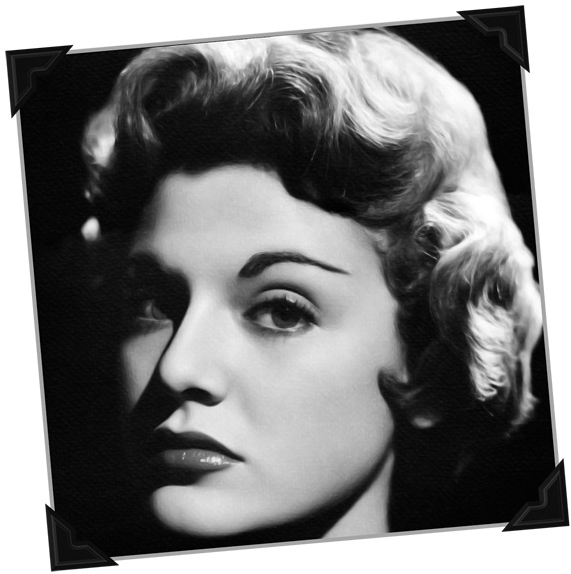
Washington, D.C., 1960
I was twenty years old. It was the summer between myjunior and senior years at Brandeis University in Waltham, Massachusetts. Duringthis three-month interval, I planned to kill many birds with one stone. I wouldlive independently of my parents, but not in a dorm. I would have a ringsideseat to participatory democracy as a worker bee in the hive of the U.S. Senate.And I would be in a brand-new dating pool! I was about to begin a summerinternship for Minnesota Senator Hubert H. Humphrey who, at that moment, wasrunning against John F. Kennedy for the Democratic presidential nomination.Humphrey was best known for being liberal and loquacious. Like Gene McCarthy andFritz Mondale, he came from the Minnesota DemocraticFarmerLabor Party. Havingknown Hubert from the time I was a kid in Wisconsin (because Mother was chairmanof the Eau Claire County Democratic Party), I wanted to pitch in and be part ofthe campaign. And did I mention the new dating pool?
Mother had arranged for me to stay with the Stolars, close family friends wholived in Washington. Bob Stolar had been in our lives from the time I was threeyears old when we lived in New Orleans. He was a renowned dermatologist whopioneered the treatment of vitiligo, and he was one of the few American expertson leprosy. He was also a psychiatrist, being early in making the connectionbetween skin eruptions and emotions. Mother had met him while volunteering atthe naval hospital where he was chief of dermatology. They had struck up afriendship, and over time he would become an informal advisor/shrink to Mother,Father, and me. It was he who encouraged my mother to ditch the twin act andcarve out her own identity. (Alas, the twin saw to it that this effort was notentirely successful, choosing to piggyback Ann Landerss popularity to becomeDear Abby.) I had seen a great deal of Uncle Bob during seven years of summercamp in Maryland because he had been the medical director who came up onweekends.
He married his wife, Frances, when they were both well into their forties. Shewas a prim Southern schoolteacher, the archetypal spinster. They would functionin loco parentis, as they say in Latinand Frances may haveactually been loco, as they say in Spanish. Frances likely had what wewould today call mood swings. She was convinced that Bob and my mother had tobe sleeping together because they talked so much on the phone, and when I wastheir extended-stay houseguest that summer of 1960, she was convinced that Bobwas sleeping with me! The situation was manageable, however, and therewere only a few outbursts from Frances. Bob was somewhat peculiar himself,perhaps owing to his genius IQ of 200. Quite tall, he looked owlish in his largeglasses, and he spoke very slowly. Every day he wore black leatherclodhoppers built for comfort, not stylewhat were then called spaceshoes.
Their two-story house was unlike any residence I had ever seen. It wasindifferently decorated and clean but had major collections, often to theceiling, of National Geographic magazines and medical journals. Theplace was cluttered beyond belief. The word had no currency then, but today allthat stuff would surely qualify these people as hoarders. Happily, neatnik thatI was, I spent very little time at the house, as I was working during the dayand out most evenings.
Although my job for Humphrey was essentially scut work, I felt like a cog in avery important wheel. This was the nations capitol, after all. And I was alsoon the lookout for smart, interesting men preferably Democrats, havingbeen more effectively indoctrinated by my mother than my father, who was aRepublican. My intern duties, in the beginning, were typically to get coffee andDanish for the staff from the cafeteria each morning, man the reception deskphone at lunch, and ride the subway in the basement to deliver folders ofdocuments either to the House or the Capitol. (This train was like a string oflinked golf carts on a track.) I spent a fair amount of time filing, something Ihad never done before. This task struck me as no more difficult than it wasinterestingwhich is to say, not at all. As it turned out, however, I managed tomake a bit of a mess of it, filing Christmas-related mail under X (for Xmas)and making other idiosyncratic choices that made it challenging for people tofind what they needed. When Hubert was eliminated at the Democratic NationalConvention in mid-July, he returned to the office and said jocularly, ItsMargos fault. She loused up the filing system.


